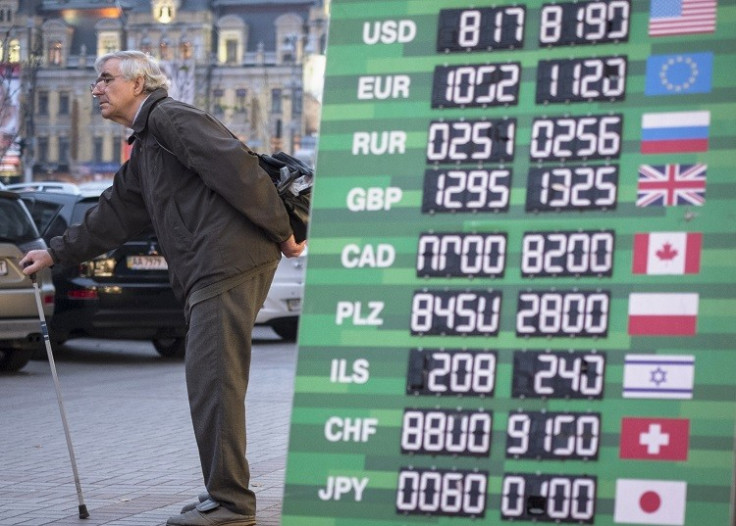How FX Dealers Can Trade $5tn a Day Without Being Regulated and Registered

Regulators around the world are investigating over a dozen banks to determine whether their traders have tried to manipulate the currency markets.
The daily $5tn (£3.1tn, €3.7tn) currency market is the largest in the financial system and is pegged to the value of funds, derivatives and financial products.
Morningstar estimates that $3.6tn in funds, including pension and savings accounts, track global indexes.
Last year, IBTimes UK exclusively revealed that a whistleblower alerted regulators in the US, UK and Switzerland in 2011 about some of the world's largest trading companies and banks manipulating benchmark sterling, US dollar and Swiss franc currency rates.
However, it was not until 2013 that these authorities started investigating the allegations of market rigging.
But unlike stocks, futures or options, currency trading does not take place on a regulated exchange and is conducted in the over-the-counter derivatives market.
All members trade with each other based on credit agreements and there is no arbitration panel to adjudicate disputes.
What this also means is that dealers can trade FX without being registered and parts of the market are wholly unregulated.
Tracy McDermott, director of enforcement at the Financial Conduct Authority (FCA) confirmed at Reuters Global Regulation Summit that the world's largest financial market is a "regulatory hole" and "spot FX trading isn't a regulated activity."
It clearly has had some form of impact on the rest of the market as three of the 17 London-based FX traders that have either been suspended or fired were not registered or approved by the FCA.
While McDermott said that "any change to this state of affairs is up to the government," her boss is clearly aiming to crack down on the market as best he can.
Only a few months ago, FCA Chief Executive Martin Wheatley pledged, at the time, to consider installing a new set of rules if the watchdog finds evidence of wrongdoing in relation to FX fixing allegations.
"If that evidence suggests a more fundamental problem, then you've always got a set of responses," said Wheatley.
"One response says you have to enforce against poor behaviour, and the other response is to look at the conditions that allowed that behaviour to exist. That is what we did with Libor and came up with a set of structural changes.
"Frankly it's an unregulated market and that would be a big policy change for global regulators to decide that FX needed to be a regulated market."
FX Trading Departures
While creating new rules for a largely unregulated market will be a tough challenge, it is clear global watchdogs will want to avoid a repeat scandal in the future.
The FCA and US Department of Justice (DoJ) criminal prosecutors have already teamed up to grill foreign exchange traders that are potentially involved with rigging currency rates.
A source tells IBTimes UK that the DoJ and FCA are now conducting joint interviews with London-based individuals at un-named banks, over allegations of rate rigging.
Since the launch of a number of investigations into FX market rigging, a number of traders have either been suspended or fired, amid the scandal.
Even the Bank of England suspended one official and confirmed that it stopped meeting a group of top London currency dealers last February following its internal review into allegations that it is involved in the foreign exchange fixing debacle.
Of course there has also been a spate of FX officials "leaving for personal reasons," such as Deutsche Bank's global head of foreign exchange, Kevin Rodgers, who is "pursuing other ambitions including academia and music."
Lloyds Banking Group's global head of foreign exchange, Darren Coote, has also left the bank "due to personal reasons which have nothing to do with the global investigations".
In total around 30 traders have been suspended, fired or left for "personal reasons."
© Copyright IBTimes 2025. All rights reserved.



















